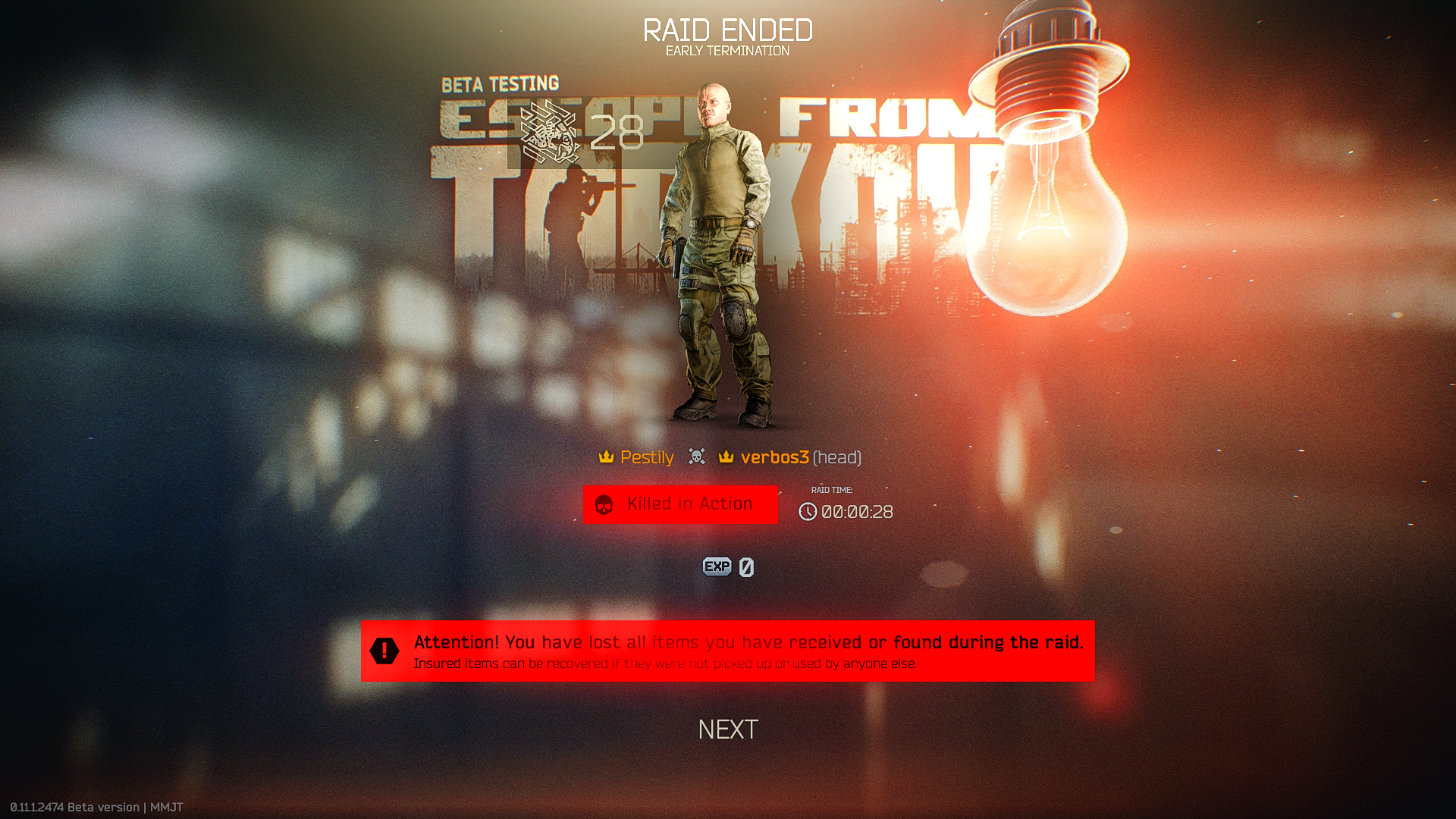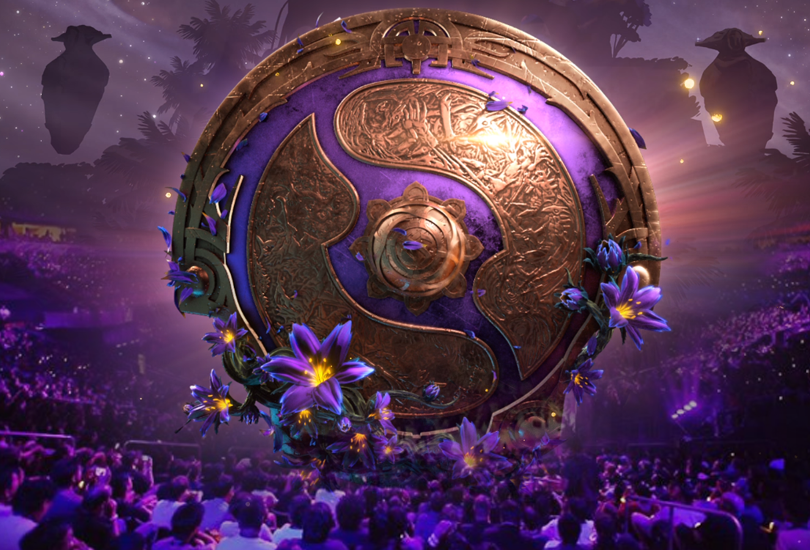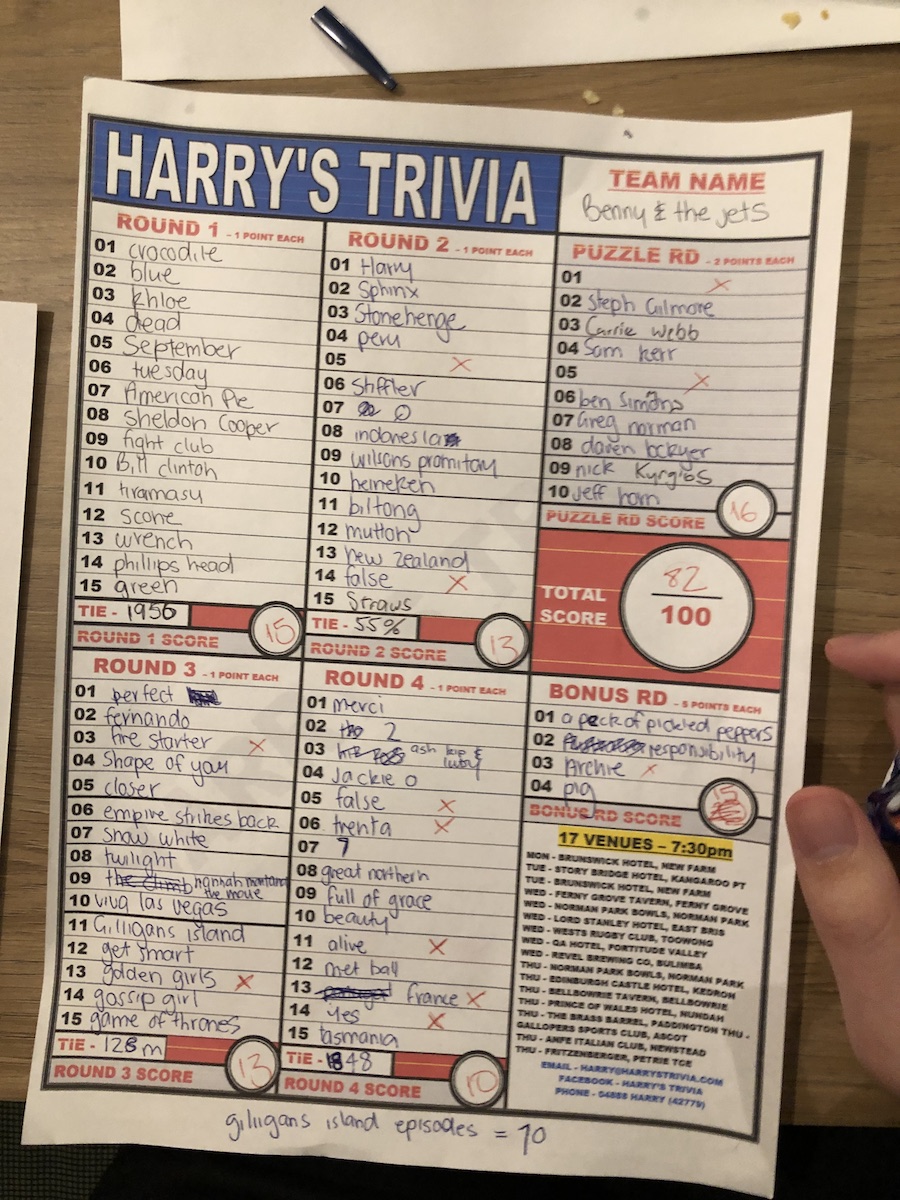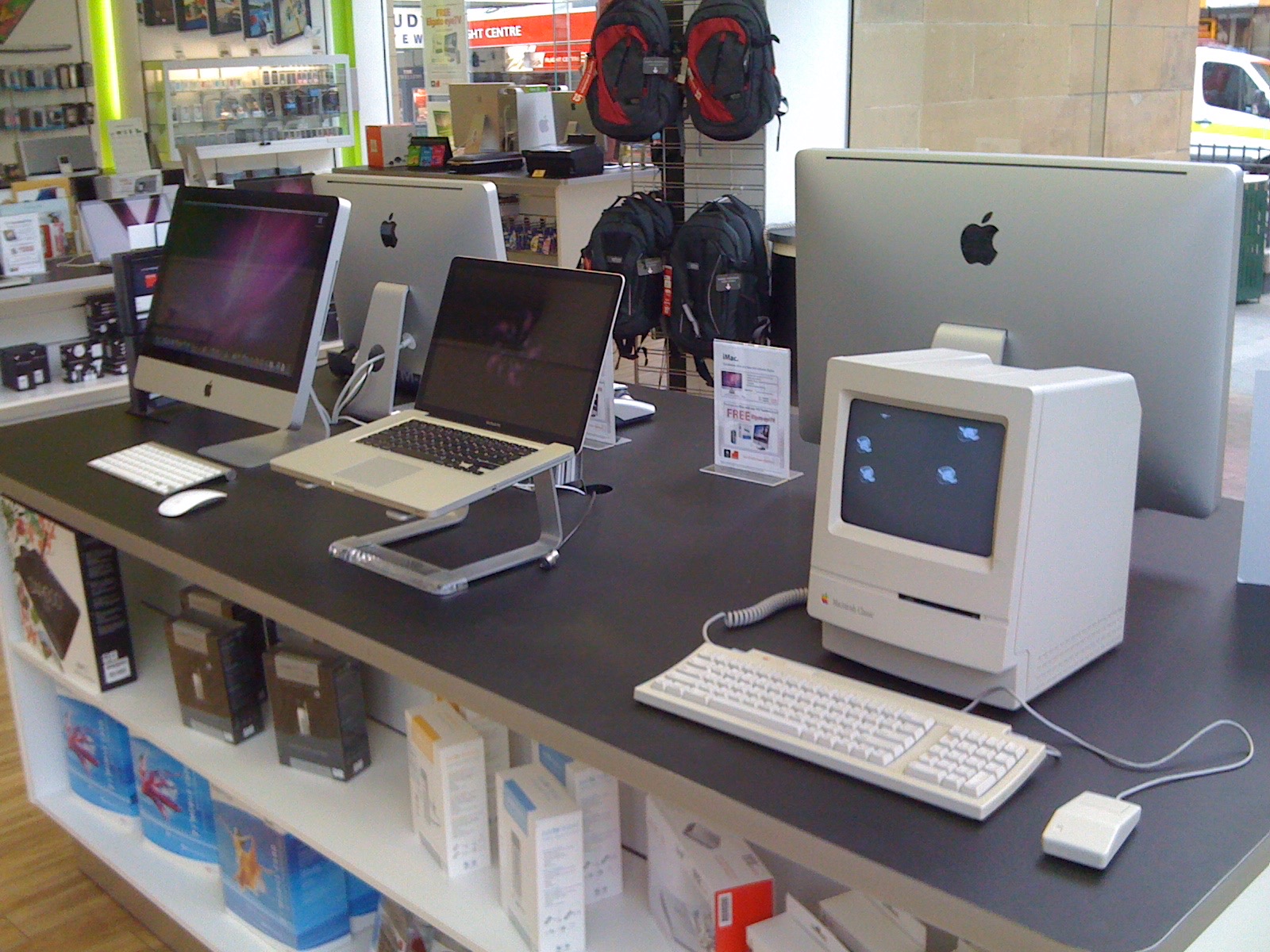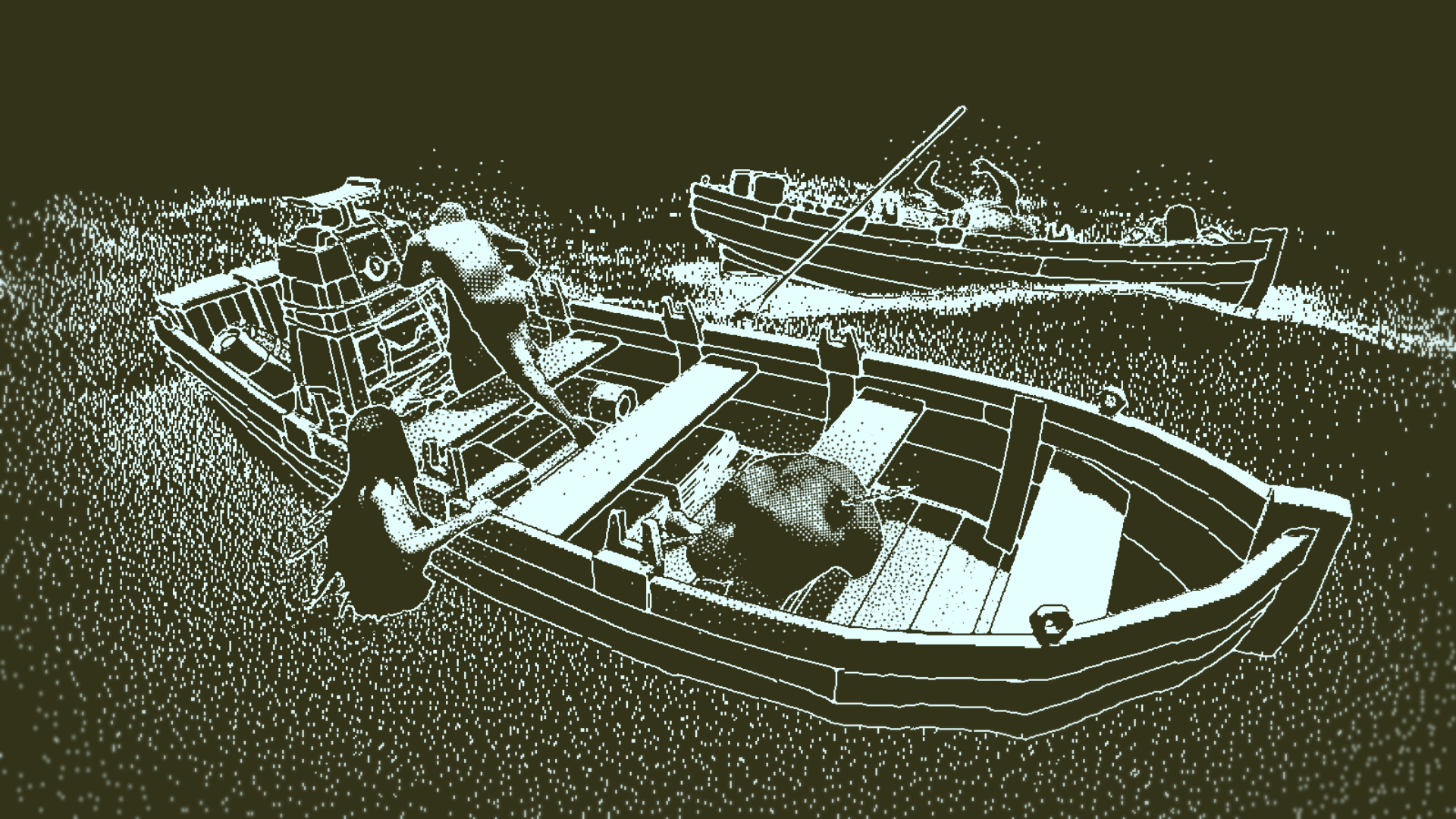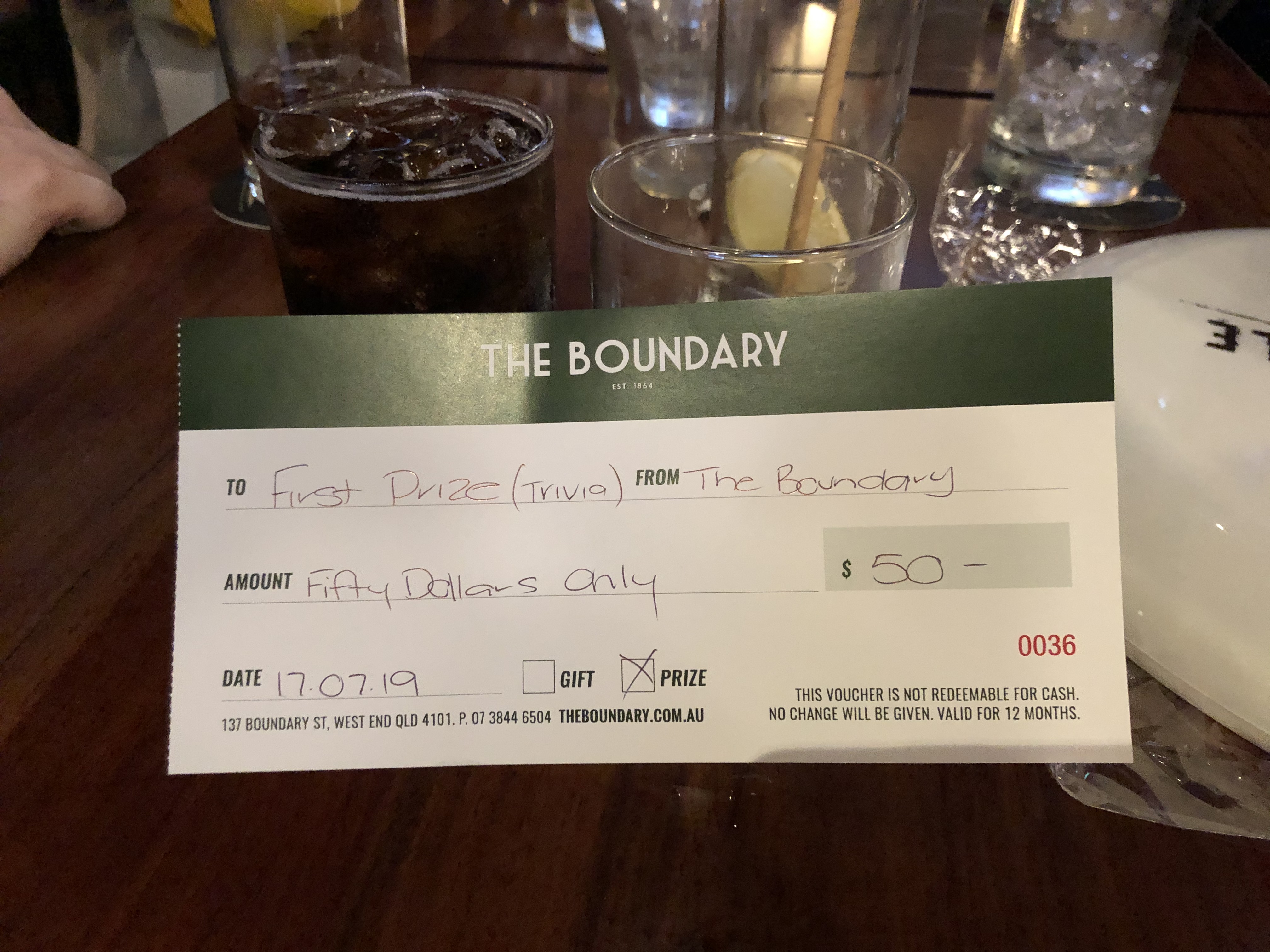
Ever since that one work trivia night a few months ago, I’ve been doing pub trivia with a guy from work and some of his friends.
It’s been really good. We’ve been going to a different venue every time, and so far, we’ve won twice out of the seven times we’ve been.
The first time we won was at The Boundary, in West End. My teammates said it had been recently-renovated, but for whatever reason, there wasn’t a huge turnout. Team Two looked to be one of three teams participating in trivia on that very quiet Wednesday night, although a team of two guys joined late, bringing the total count to four. It was by far the least-populated venue we’ve been to. The Boundary’s trivia differentiated itself by featuring per-round prizes comprised of various brewery company merchandise and vouchers for discount drinks, and seeing as we managed to win three out of the four or so rounds, it was probably no surprise we ended up winning the whole thing. That earned us a nice $50 voucher, which we promptly spent on drinks to end the night.
The Boundary is also notable for being the only place I’ve drunk alcohol at. Partly because it was free, partly because I felt like I had to celebrate our first trivia win somehow. But, like most of the times I’ve drunk alcohol, I regretted it not too long afterwards. I had two drinks (a rum and coke, and a vodka cranberry) and that was it — after that, I just wanted to sleep. I had planned to walk back to the train station, but I ended up ordering an Uber, and might have even shut my eyes for a few minutes during the ride home.
One of the reasons we’ve been going to a different place every time is that we haven’t found a place that ticks all of our collective boxes. Either we’ve gone somewhere with great trivia, but a terrible atmosphere, or we go somewhere with a great atmosphere, and awful trivia. Or some of us like the trivia, but others dislike the atmosphere. Although we place pretty highly most of the time, there are just some places that we know we’ll never win at, only because there’s so many other teams that are doing just as well as we are (or better). The very first pub trivia that I went to with the current squad was at Stones Corner. There were 24 teams in attendance that night, which was crazy and made for some very tough competition. So, week after week, our search for the ideal pub trivia location continues.
As someone who doesn’t drink, and therefore has no real reason to frequent pubs or bars in the traditional, Australian-drinking-culture sense, it’s been really interesting seeing the variety of different venues. By going to a different place every time, I’ve now seen the inside of quite a few places, some better than others. Some quieter, some cosier. Every place has been unique in some way, but I’d say my favourite places have been the ones where the patrons skew towards my demographic. That is, young adults enjoying a drink with a few friends after work, answering a few questions here and there. Not that I have something against the older generation, but they’re usually far too good at trivia. And besides, aren’t they supposed to have their own families or something? Kids to look after at home? What are they doing muscling on my territory that I only claimed a few short months ago?
No, the thing that makes any pub trivia attractive to me, are ones where young adults gather to socialise within their own circles of friends, and compete against others doing the same thing. But good trivia helps with that as much as location does, I’ve found.
It turns out, there are a few companies that do organised trivia in Brisbane.
